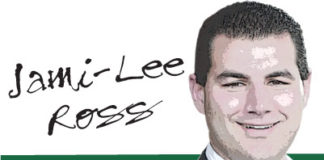 There’s a lot of partisan commentary on Budget 2019 out there already. The red team says everything is great. The blue team says everything is bad. It’s a “Wellbeing Budget” or “Botched Budget”, depending on who you cheerlead for.
There’s a lot of partisan commentary on Budget 2019 out there already. The red team says everything is great. The blue team says everything is bad. It’s a “Wellbeing Budget” or “Botched Budget”, depending on who you cheerlead for.
I no longer sit in Parliament with the same permanently tinted glasses on. The reality is budgets in NZ have been fairly middle of the road for my whole adult life. Cullen, English, Joyce and Robertson all produced fairly similar outcomes.
We fight elections and policies at the margins these days, and there’s a general consensus on approaches to fiscal policy.
The Government did well to put $1.9 billion into mental health. Unemployment also remains low with economic growth moderate.
Labour is continuing the social investment work of the previous National Government and debt levels will land roughly where English/Joyce projected.
There wasn’t much that should get either side too excited or disappointed. That’s probably the biggest let down for the government’s supporters – there’s little to be inspired by.
Fuel tax increases and lack of sufficient funding for teachers, ambulance and dental services stand out as missed opportunities.
The business community still sees uncertainty and transport programmes move forward at their typical slow pace.
The biggest failure of the Budget has to be the lack of vision for solving the housing crisis. Kiwibuild is proving a failure yet remains on life support. There is little else on the horizon.
Considerably increasing land supply and genuine RMA reform are needed, but tends to be too hard for us politicians to deliver. First home buyers don’t see anyone offering the answers they deserve.
On education, it’s a positive move for the Government to put more than a billion dollars toward building new schools and classrooms. But the glaring omission was teachers’ salaries, something these hard working professionals are yet to see certainty on.
Budget 2019 was incremental in its change. Some things good, some less so. It gets the job done without excitement or offensiveness.
Next time you see a political party using a catch phrase to describe a policy or their opponents, don’t pay too much attention. It’s probably not good for your own wellbeing.
- Jami-Lee Ross, MP for Botany








